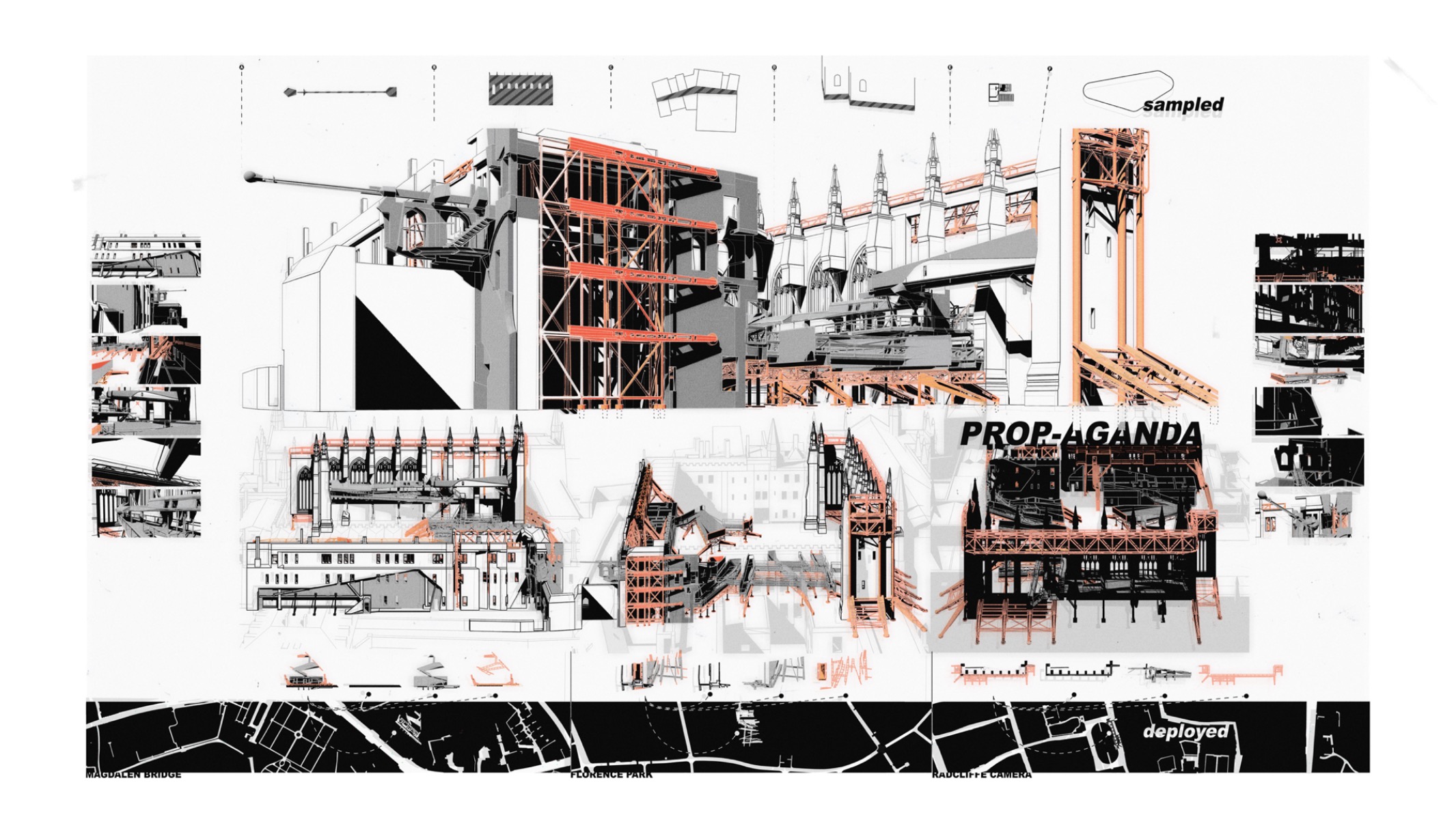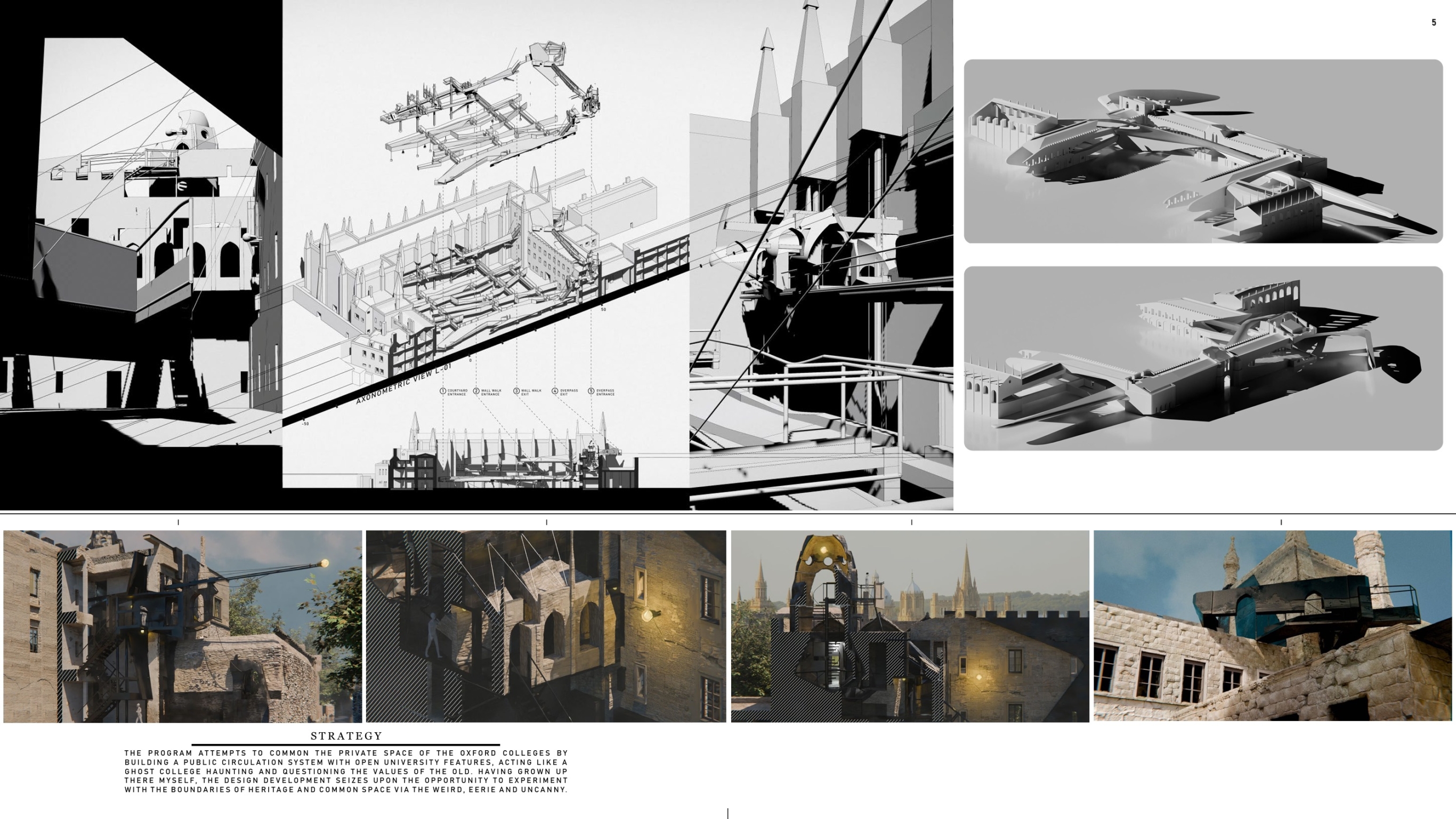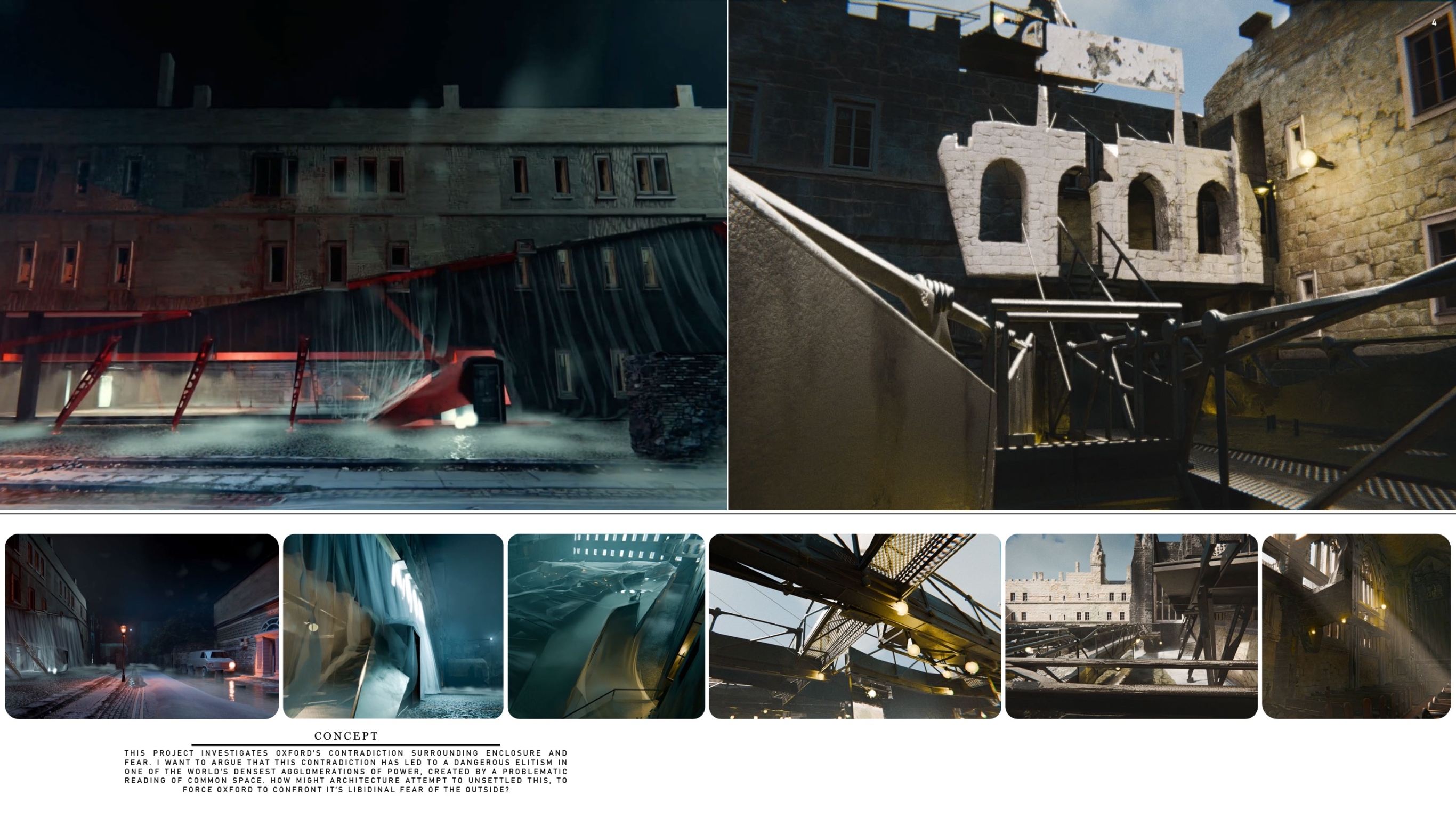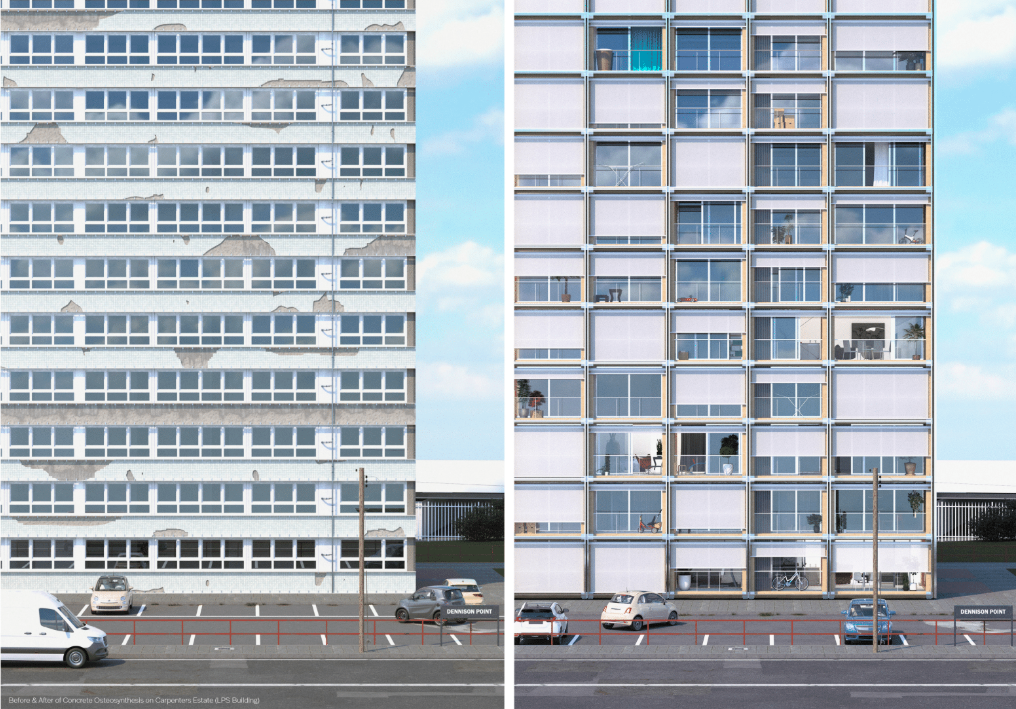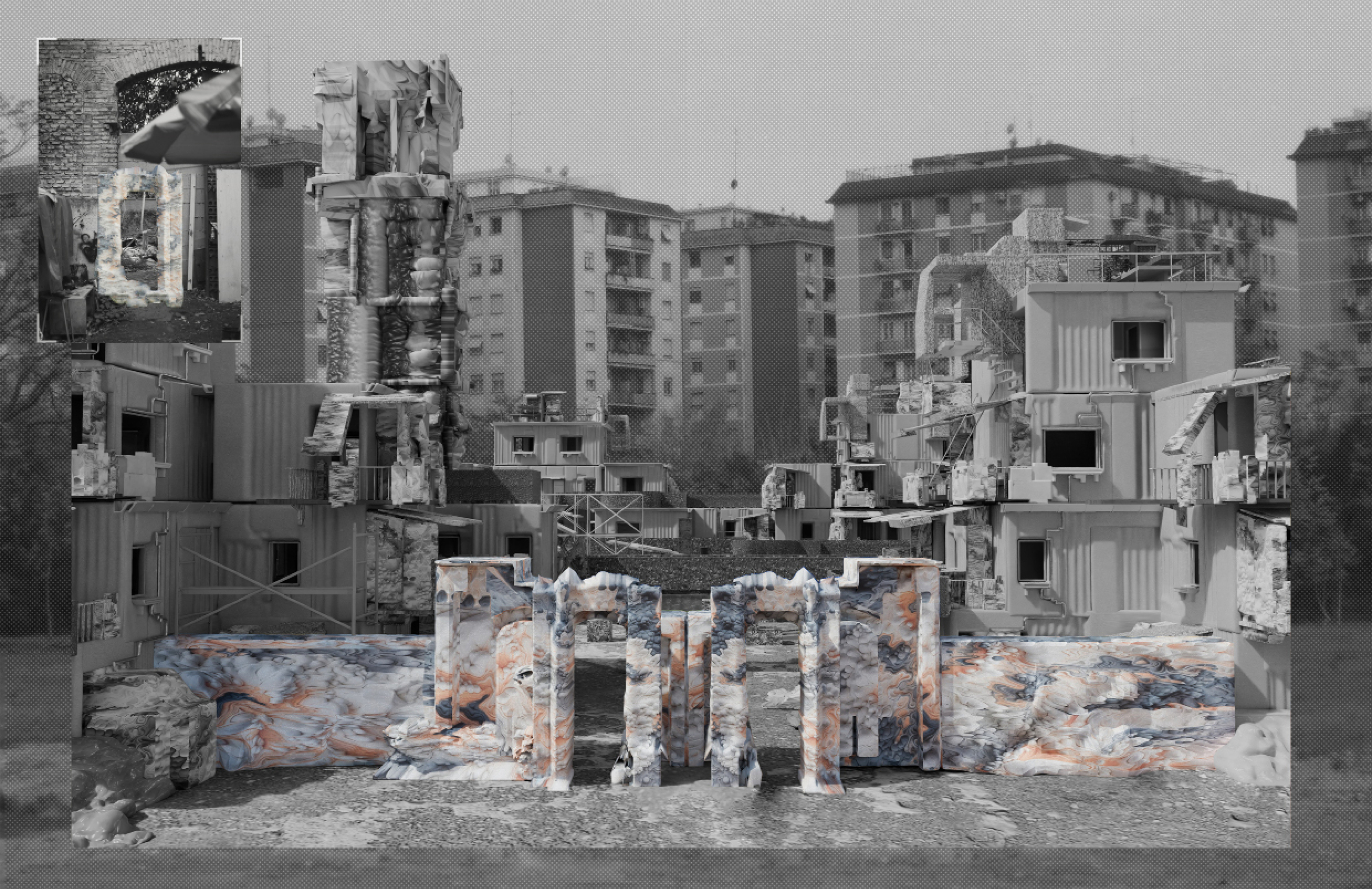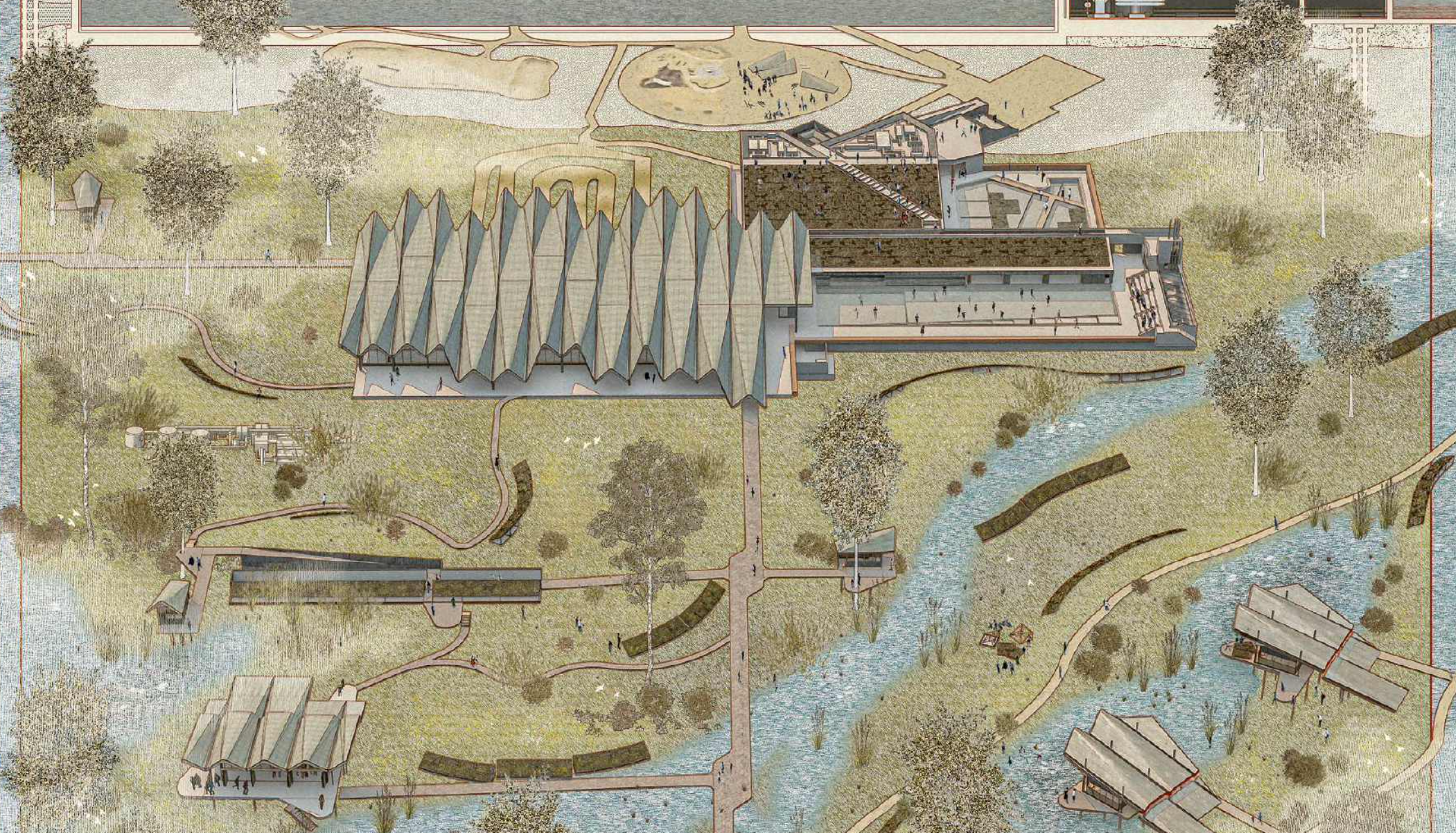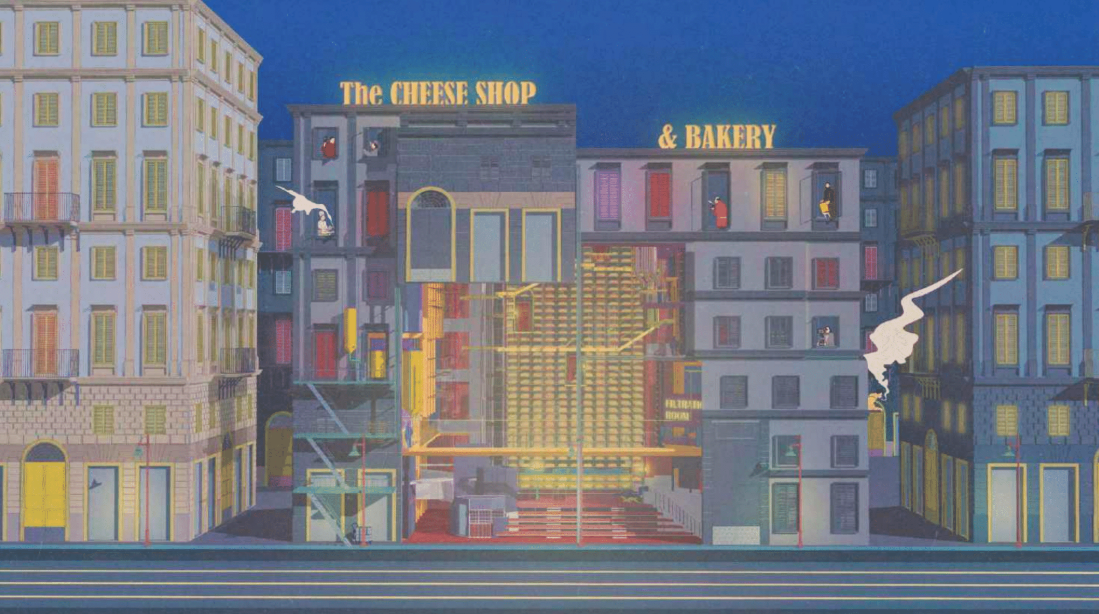Student prize
Ghost Commons by Daniel Collier
Ghost Commons by Daniel Collier will be presented at the AT Awards live finals on 17 September 2025. Learn more about the project below.
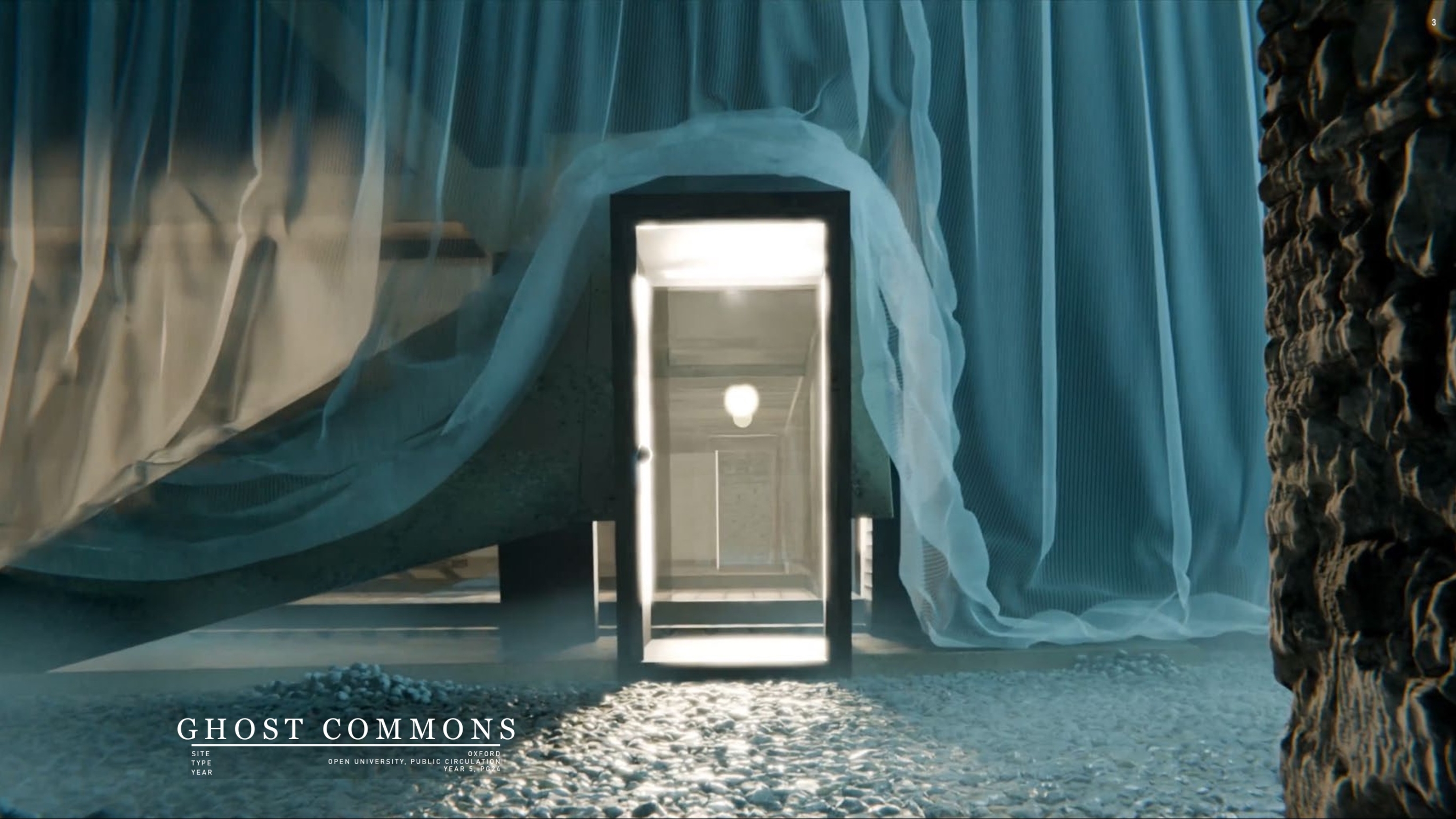
Ghost Commons: Hauntology in Oxford’s architecture explores themes of hauntology and social inequality in Oxford, using speculative architectural interventions to challenge the city’s rigid heritage framework. The design responds to Oxford’s entrenched culture of enclosure, characterised by walled colleges, private schools, and prisons, by proposing spatial strategies that disrupt these boundaries. Drawing on personal experience of growing up in Oxford, the project critiques how fear has shaped the city’s built environment, fostering an exclusionary and elitist spatial order.
The speculative proposal introduces open university features into the city, physically linking Oxford’s deprived outskirts with its privileged centre. These interventions take the form of imagined architectural sets deployed into real urban contexts, aiming to “common” the private spaces of the university. The design narrative is presented through an animated film, framed as a reboot of the 1970s sci-fi series Sapphire & Steel, using its structure to explore Oxford’s emotional and physical boundaries.
Architecturally, the scheme proposes precise alterations to the college fabric – extracting limestone from existing walls to create post-tensioned stone columns and lightweight structural elements. The design incorporates uncanny visual and spatial references: barred stairs and tight passageways evoke the city’s carceral history, while repeated college forms echo the institutional sameness across Oxford. A key intervention, the “ghost courtyard,” subverts traditional college layouts by inserting public alleyway typologies into private courtyards, effectively reversing inside and outside.
Other details reinforce the interplay between domesticity and institutional form. A second entrance, comprising a modest domestic door and curtain, leads into a public lecture theatre, referencing the tension between homeliness and alienation. The overall aim is to confront Oxford’s established spatial hierarchies, reimagining how architecture might reveal and challenge the city’s social and historical exclusions.


